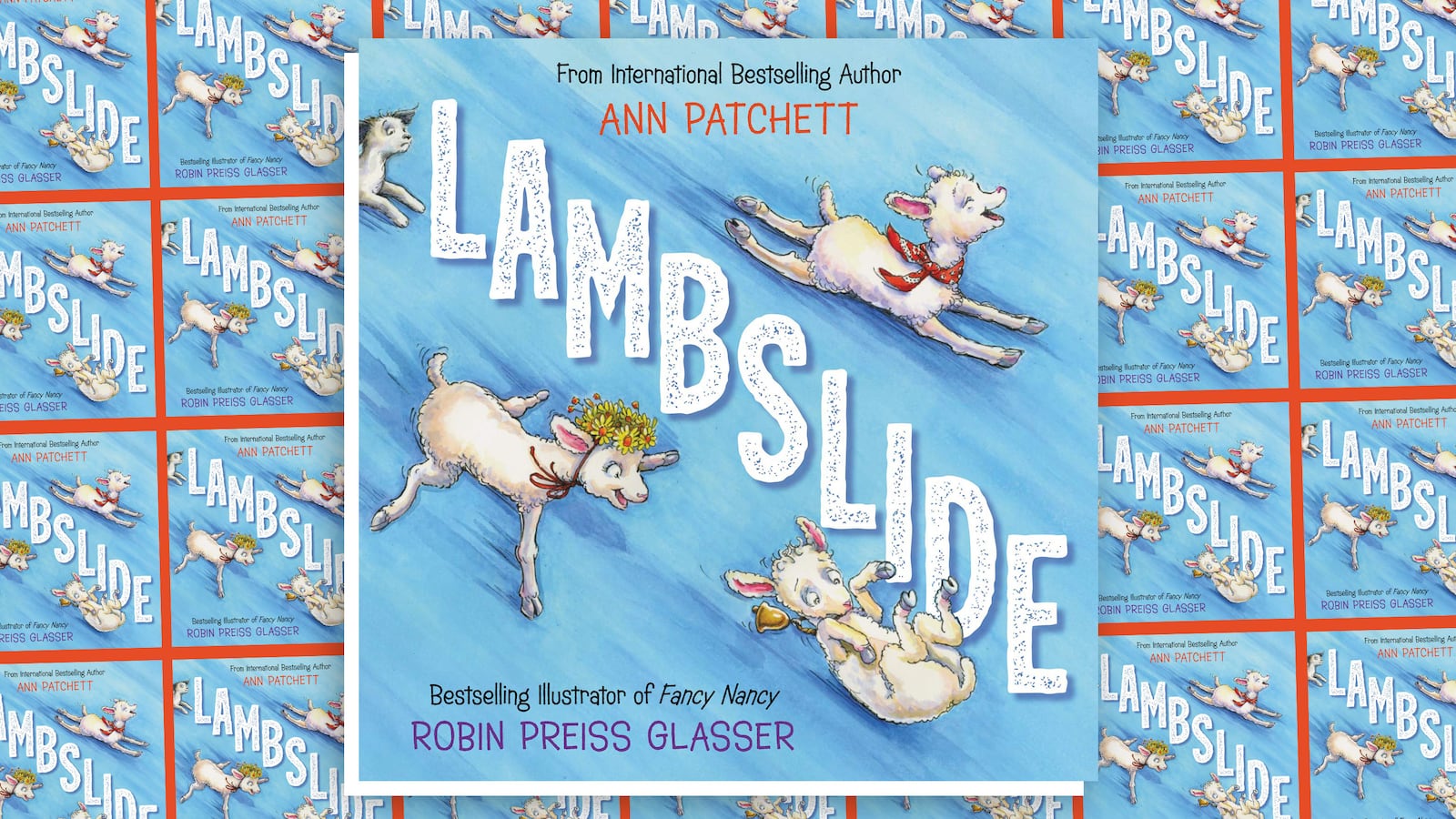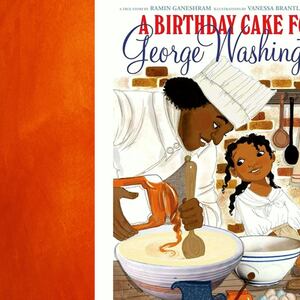It is no surprise that the Trump administration’s steady assault on democratic norms has paved the way for a series of new books written in defense of democracy. The surprise is that one of the most engaging of these new books—bestselling novelist Ann Patchett’s Lambslide—is for readers ages 4 to 8.
Patchett has written on politics before. In her breakthrough novel, Bel Canto, she dealt with an attempted coup in a nameless Latin-American country. In her next novel, Run, she explored racism in America. (Full disclosure: in 1982 Patchett was a student in a class I taught at Sarah Lawrence College.)
In Lambslide, which comes with inspired illustrations by Robin Preiss Glasser, politics are blended into the story rather than treated as clash of competing interests. No politician, national or local, is ever mentioned by name.
Lambslide gets its title from an article Patchett read. As she noted in an interview she did from her hometown of Nashville, Tennessee, where she is the co-owner of a thriving bookstore, “I was reading The New York Times the morning after Conor Lamb won the 17th Congressional District of Pennsylvania, and someone was holding a poster that said ‘LAMBSLIDE’ on it.”
In 2018, Lamb, a Democrat and former Marine who had never held national office before, defeated his Republican opponent in a district that Donald Trump carried by nearly 20 percentage points in 2016, but in Lambslide there is no gloating over a political upset.
The story has its roots in the decision of Nicolette Farmer, the young daughter of the family who owns the farm on which the lambs live, to run for class president at her elementary school. “You’ll win by a landslide,” Nicolette’s mother tells her. But what the lambs think they hear is, “You’ll win by a lambslide.”
Their mistake makes the lambs think that a lambslide would be wonderful to have, and they ask their mother how they should go about getting one. “First,” she tells them, “you should see what the other animals think.” And with this advice in mind, the lambs begin the process of consulting with other farm animals. The chickens are happy to have a lambslide as long as it does not come at the expense of their chicken feed. The goats are happy to have a lambslide if they can use it. The pigs are happy to have a lambslide provided it does not cover up their muddy places.
The lambs’ next step, taken with the advice of Nicolette Farmer, who has now become class president, is to make signs and petition Nicolette’s parents for a lambslide. Nicolette’s parents are impressed by the lambs’ determination, but before they commit themselves to building a lambslide, they decide that the whole farm should vote on whether or not there should be a lambslide.
The result, with the horses and cows joining in the final vote, is a landslide victory for a lambslide. The triumphal conclusion to Lambslide comes in a double-page scene in which the Farmers use a blue tarp that was covering hay bales to build on a nearby hill a slide that is fast enough for the lambs, strong enough for the cows, wide enough for the horses.
And that’s it. Lambslide never turns didactic, never tries to go over the heads of its 4- to 8-year-old readers to speak directly to their parents. Just before they go to bed, the lambs talk with their mother about whether a swimming pool might be in order for the future, but there is no sense that the lambs want to use their lambslide to start political careers that will make them leaders on the farm.
As Patchett observed in the same interview that she talked about first coming across the story of Conor Lamb, “I don’t know that the book is a call for activism as much as it is a call to check in with the people around you and try to figure out if the thing you want matches up with the thing they want.”







